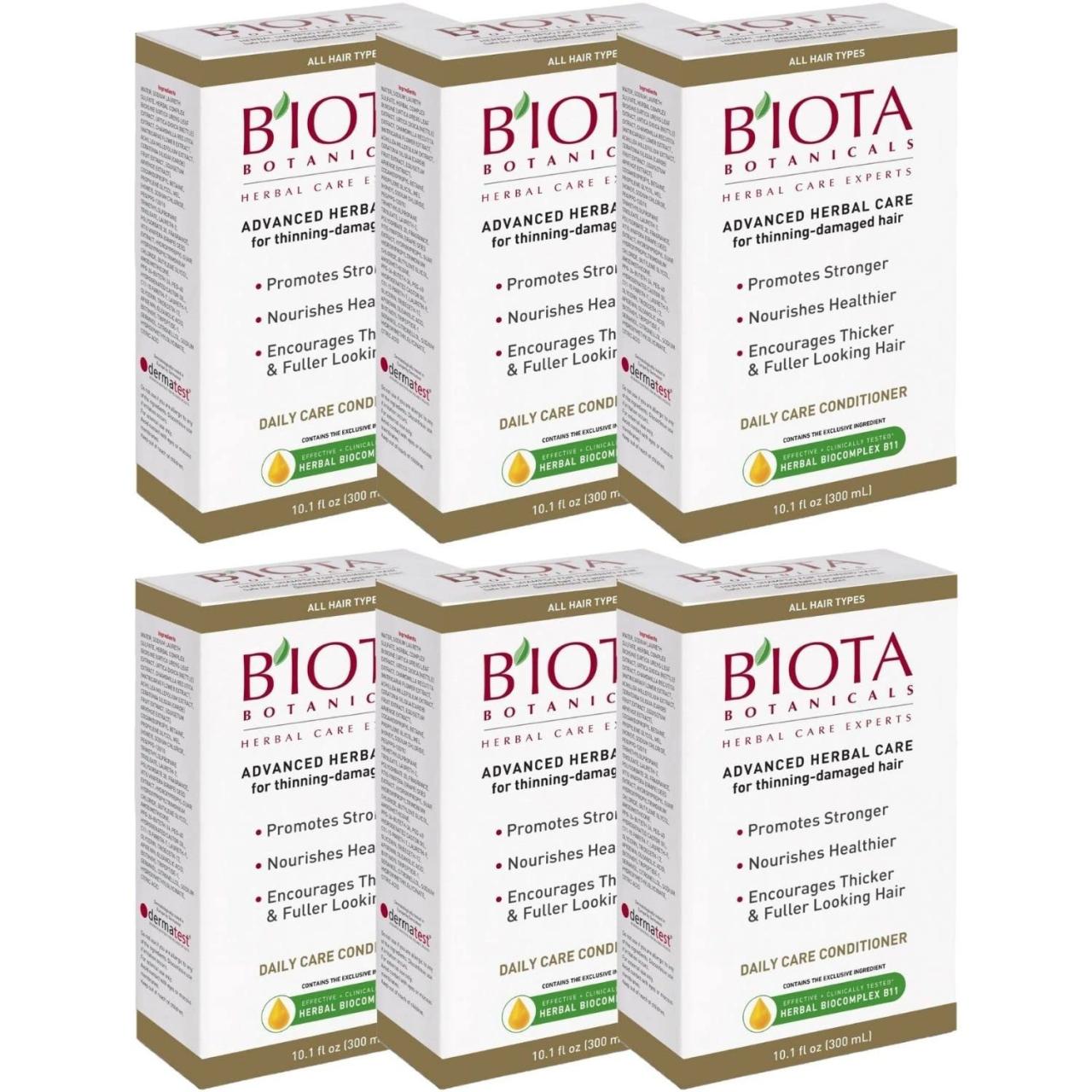Why Biota Herb is a Must-Have in Every Household? This versatile herb, with its rich history and diverse applications, has become a cornerstone of natural wellness practices worldwide. From its traditional use in ancient medicine to its modern-day integration into culinary creations and aromatherapy, Biota herb offers a unique blend of health benefits and practical applications.
This article delves into the fascinating world of Biota herb, exploring its origins, medicinal properties, culinary uses, and potential benefits for overall well-being. We’ll uncover the scientific evidence behind its effectiveness, discuss its safety and precautions, and examine its growing popularity in modern society.
Introduction to Biota Herb

Biota herb, also known as Thuja, is a genus of coniferous evergreen trees and shrubs belonging to the cypress family (Cupressaceae). These plants are native to North America, East Asia, and parts of Europe, and they have a long history of use in traditional medicine, landscaping, and horticulture.
Biota herb has been cultivated and utilized for centuries, with records of its use dating back to ancient times. Its name “Biota” originates from the Greek word “bios,” meaning “life,” reflecting its perceived vitality and life-giving properties.
Species of Biota Herb
Biota herb encompasses several species, each with distinct characteristics and uses. Some notable species include:
- Thuja occidentalis (Eastern White Cedar):Native to eastern North America, this species is a popular choice for landscaping due to its pyramidal shape, dense foliage, and adaptability to various soil conditions. Its wood is highly durable and resistant to decay, making it valuable for construction and furniture.
- Thuja plicata (Western Red Cedar):This species, native to the Pacific Northwest of North America, is known for its large size, reddish-brown bark, and distinctive aroma. Its wood is highly prized for its resistance to rot and insects, making it suitable for building, roofing, and crafting.
- Thuja orientalis (Oriental Arborvitae):This species, native to East Asia, is a smaller, more compact tree with a distinctive fan-shaped foliage pattern. It is commonly used in landscaping and as a hedge plant.
Traditional Uses and Cultural Significance
Biota herb has a rich history of traditional use in various cultures.
- Indigenous Peoples of North America:Native American tribes have long used different parts of Biota herb for medicinal purposes. The leaves, twigs, and bark were used to treat respiratory ailments, skin infections, and other conditions. The wood was also used for building, crafting, and ceremonial purposes.
- Traditional Chinese Medicine:In Traditional Chinese Medicine (TCM), Biota herb is known as “Bai Zhu,” and it is used to alleviate coughs, asthma, and other respiratory problems. It is also believed to have anti-inflammatory and immune-boosting properties.
- European Folk Medicine:In European folk medicine, Biota herb was traditionally used to treat a range of ailments, including coughs, colds, and skin conditions. It was also used as a diuretic and a tonic for the digestive system.
Health Benefits of Biota Herb
Biota herb, scientifically known as _Platycladus orientalis_, has been used in traditional medicine for centuries. Its leaves, bark, and seeds are believed to possess various medicinal properties that can benefit overall health.
Respiratory Health Benefits
Biota herb has been traditionally used to treat respiratory ailments such as coughs, asthma, and bronchitis. Research suggests that the herb contains compounds with anti-inflammatory and expectorant properties that can help relieve these conditions.
- Anti-inflammatory Properties:Biota herb contains compounds like flavonoids and tannins, which have been shown to possess anti-inflammatory properties. These compounds can help reduce inflammation in the airways, easing symptoms like coughing and wheezing.
- Expectorant Properties:Biota herb can help loosen and remove mucus from the respiratory tract, making it easier to breathe. Studies have shown that extracts from the herb can effectively clear mucus from the lungs, providing relief from respiratory congestion.
Immune System Enhancement
Biota herb is believed to have immune-boosting properties. It contains antioxidants and other bioactive compounds that can help strengthen the immune system, making it more resilient to infections and diseases.
- Antioxidant Properties:Biota herb is rich in antioxidants, which help protect the body from damage caused by free radicals. Free radicals can contribute to various health problems, including weakened immunity.
- Immune System Modulation:Biota herb can modulate the immune system by stimulating the production of white blood cells, which are crucial for fighting infections.
Overall Well-being
Beyond respiratory health and immune system benefits, Biota herb is believed to promote overall well-being.
- Anti-aging Properties:Some studies suggest that Biota herb may have anti-aging properties due to its antioxidant content. These antioxidants can help protect the skin from damage caused by free radicals, contributing to a youthful appearance.
- Stress Relief:Biota herb has been used in traditional medicine to alleviate stress and anxiety. Its calming properties may be attributed to the presence of certain compounds that can promote relaxation.
Comparison with Other Herbal Remedies, Why Biota Herb is a Must-Have in Every Household
Biota herb shares some similarities with other popular herbal remedies for respiratory health, such as licorice root and ginger.
Biota Herb’s versatility makes it a must-have in every household. Its antibacterial and antifungal properties make it ideal for treating minor cuts and burns, while its soothing qualities make it a natural remedy for skin irritations. To enjoy the benefits of Biota Herb year-round, consider propagating your own plants.
Learn some simple propagation hacks for thriving African violets here , and soon you’ll have a plentiful supply of this beneficial herb to enjoy. With its numerous uses and easy propagation, Biota Herb is truly a plant that deserves a place in every home.
- Licorice Root:Both Biota herb and licorice root possess anti-inflammatory and expectorant properties, making them effective for treating coughs and bronchitis. However, licorice root contains glycyrrhizic acid, which can cause side effects in high doses. Biota herb, on the other hand, is generally considered safe for consumption.
- Ginger:Ginger is another well-known herb used to treat respiratory ailments. It has anti-inflammatory and anti-nausea properties. While both Biota herb and ginger can help relieve coughs and congestion, ginger is also effective in reducing nausea and vomiting.
Culinary Uses of Biota Herb
Biota herb, with its distinct aroma and flavor, can be incorporated into a variety of dishes to enhance their taste and add a touch of culinary sophistication. It can be used fresh, dried, or as an essential oil, offering versatility in its application.
Incorporating Biota Herb into Dishes
Biota herb can be used in a variety of ways to enhance the flavor of dishes.
- Fresh Biota Herb: Fresh biota herb can be added to dishes towards the end of cooking to preserve its delicate flavor. It can be chopped and sprinkled over salads, soups, stir-fries, and pasta dishes.
- Dried Biota Herb: Dried biota herb can be used in marinades, rubs, and sauces. It adds a more concentrated flavor to dishes and can be stored for longer periods.
- Biota Herb Essential Oil: Biota herb essential oil can be used to add a subtle flavor to dishes. It is best used sparingly, as a few drops can go a long way.
Recipes and Culinary Tips
Here are some recipes and culinary tips for using biota herb in cooking:
Biota Herb Infused Oil
- Ingredients:
- 1 cup extra virgin olive oil
- 1/4 cup fresh biota herb leaves
- Instructions:
- Combine the olive oil and biota herb leaves in a jar.
- Seal the jar tightly and let it sit in a cool, dark place for at least 2 weeks, shaking occasionally.
- Strain the oil through a cheesecloth or fine-mesh sieve.
- Store the infused oil in a cool, dark place for up to 6 months.
- Culinary Tip: This infused oil can be used to dress salads, drizzle over roasted vegetables, or add a touch of flavor to pasta dishes.
Biota Herb Roasted Chicken
- Ingredients:
- 1 whole chicken
- 2 tablespoons olive oil
- 1 tablespoon dried biota herb
- 1 teaspoon salt
- 1/2 teaspoon black pepper
- Instructions:
- Preheat oven to 375 degrees Fahrenheit (190 degrees Celsius).
- In a bowl, combine the olive oil, dried biota herb, salt, and pepper.
- Rub the chicken with the mixture, making sure to coat the entire bird.
- Place the chicken in a roasting pan and roast for 1 hour and 15 minutes, or until the internal temperature reaches 165 degrees Fahrenheit (74 degrees Celsius).
- Culinary Tip: Serve the roasted chicken with roasted vegetables or a side of mashed potatoes.
Biota Herb Dishes and Their Flavors
Dish |
Flavor Profile |
|---|---|
Biota Herb Salad |
Fresh, herbaceous, slightly bitter |
Biota Herb Soup |
Warm, comforting, with a hint of citrus |
Biota Herb Roasted Salmon |
Earthy, savory, with a touch of sweetness |
Biota Herb Pasta Sauce |
Rich, complex, with a hint of spice |
Practical Applications of Biota Herb

Biota herb, with its diverse medicinal properties and aromatic fragrance, transcends its culinary uses and offers a wide range of practical applications for enhancing well-being and promoting relaxation. From aromatherapy to DIY remedies, Biota herb provides a natural and effective approach to incorporating its benefits into daily life.
Aromatherapy and Relaxation
Biota herb’s calming scent, attributed to its essential oils, makes it a valuable tool for aromatherapy. Its aroma can promote relaxation, reduce stress, and improve sleep quality.
- Diffusing Biota Essential Oil:Adding a few drops of Biota essential oil to a diffuser can fill a room with its calming scent, creating a serene atmosphere conducive to relaxation.
- Creating a Relaxing Bath:Adding a few drops of Biota essential oil to a warm bath can create a soothing and therapeutic experience. The oil’s aroma can help ease muscle tension and promote relaxation.
- Massage Oil:Biota essential oil can be blended with a carrier oil like coconut oil or almond oil for massage. This can help reduce muscle tension and promote relaxation.
DIY Remedies
Biota herb’s antimicrobial and anti-inflammatory properties lend themselves to creating natural remedies for various ailments.
- Infused Oil:Biota herb can be infused in oil to create a remedy for skin conditions like eczema and acne. The oil can be applied topically to soothe inflammation and promote healing.
- Herbal Tea:Brewing a cup of Biota herb tea can help soothe digestive discomfort and promote relaxation.
- Gargle:Biota herb tea can be used as a natural gargle to help soothe a sore throat.
Incorporating Biota Herb into Daily Routines
Biota herb’s versatility allows for its integration into various aspects of daily life, offering a natural approach to well-being.
- Culinary Uses:Biota herb can be incorporated into various dishes, adding a unique flavor and aroma while providing health benefits.
- Aromatherapy:Regular use of Biota essential oil through diffusing, baths, or massage can promote relaxation and reduce stress.
- DIY Remedies:Creating and using DIY remedies with Biota herb can provide natural solutions for various ailments.
Safety and Precautions
While Biota herb offers numerous health benefits, it’s crucial to use it responsibly and be aware of potential side effects and interactions. Like any herbal remedy, Biota herb should be used with caution and under the guidance of a healthcare professional, especially for individuals with pre-existing medical conditions or those taking medications.
Potential Side Effects and Interactions
Biota herb is generally considered safe when used appropriately. However, certain individuals may experience mild side effects, such as digestive upset, nausea, or allergic reactions. In rare cases, excessive consumption or prolonged use may lead to more severe adverse effects.
It’s important to note that Biota herb may interact with certain medications, including blood thinners, anti-inflammatory drugs, and immunosuppressants. Therefore, it’s crucial to consult with a healthcare professional before using Biota herb, especially if you are taking any medications or have any underlying health conditions.
Recommended Dosage and Usage Guidelines
The recommended dosage of Biota herb varies depending on the individual’s health condition and the specific application. Generally, a standard dose for adults is 1-2 grams of dried herb per day, taken in divided doses. It’s advisable to start with a lower dose and gradually increase it as needed.
For topical use, Biota herb can be applied directly to the skin or diluted in a carrier oil or cream. However, it’s essential to conduct a patch test before applying Biota herb topically to avoid any allergic reactions.
Safe Storage and Handling
To ensure the potency and safety of Biota herb, it’s crucial to store it properly. Store dried Biota herb in an airtight container in a cool, dark, and dry place. Avoid storing it in direct sunlight or in areas with high humidity, as this can degrade the herb’s quality and effectiveness.
When handling Biota herb, it’s essential to practice good hygiene. Wash your hands thoroughly before and after handling the herb. Avoid touching your eyes or mouth after handling Biota herb, as this can lead to irritation or allergic reactions.
Biota Herb in Modern Society
Biota herb, with its rich history of traditional uses, is experiencing a resurgence in popularity within the modern health and wellness landscape. Its diverse properties, ranging from its potential antioxidant and anti-inflammatory effects to its soothing and calming properties, have caught the attention of both individuals seeking natural remedies and the industries that cater to them.
Biota Herb in Modern Health and Wellness Practices
The growing interest in natural and holistic approaches to health has fueled the demand for Biota herb. Many individuals are incorporating it into their daily routines for its potential benefits.
- Stress Reduction:Biota herb’s calming properties are often sought after by individuals looking for natural ways to manage stress and anxiety. It is sometimes used in teas, tinctures, or aromatherapy blends.
- Sleep Improvement:Some individuals report that Biota herb can promote relaxation and improve sleep quality. Its calming effects may help reduce racing thoughts and promote a more restful night’s sleep.
- Immune Support:Biota herb’s potential antioxidant and anti-inflammatory properties are believed by some to support immune function. It may be used as a natural remedy to help strengthen the body’s defenses.
Biota Herb in Various Industries
Biota herb’s versatility has led to its integration into various industries beyond traditional medicine.
- Pharmaceuticals:Researchers are exploring the potential of Biota herb’s active compounds for pharmaceutical applications. Studies are investigating its potential in treating conditions like inflammation, anxiety, and sleep disorders. Some pharmaceutical companies are incorporating Biota herb extracts into their products, utilizing its natural properties to enhance their efficacy.
Biota herb, with its versatility in the kitchen and medicinal properties, is a valuable addition to any household. Its easy propagation makes it a joy to cultivate, and you can quickly expand your supply by following simple techniques like leaf cuttings.
If you’re looking to cultivate a whole garden of beautiful blooms, consider exploring the world of African violets, as detailed in this guide: Propagation Tricks: How to Grow a Whole Garden of African Violets. With a little effort, you can enjoy the vibrant colors and delightful fragrance of these popular houseplants, adding a touch of nature to your home.
- Cosmetics:The cosmetic industry has recognized Biota herb’s potential benefits for skin and hair care. Its soothing and antioxidant properties are believed to promote healthy skin, reduce inflammation, and protect against environmental damage. Biota herb extracts are now found in a range of skincare and hair care products, marketed for their natural and restorative qualities.
Future Potential of Biota Herb
As the world continues to prioritize natural remedies and sustainable practices, Biota herb is poised for a significant role in the future.
- Increased Research:The growing interest in Biota herb’s potential benefits is driving further research and development. Studies are underway to explore its efficacy in treating various conditions, its safety profile, and the optimal dosage for different applications. The findings from these studies will provide a stronger scientific foundation for its use in both traditional and modern healthcare.
- Sustainability and Ethical Sourcing:The increasing demand for Biota herb is raising awareness about the importance of sustainable and ethical sourcing practices. This will encourage responsible cultivation and harvesting methods to ensure the long-term availability of this valuable herb.
- Integration into Modern Healthcare:Biota herb has the potential to become a more mainstream component of modern healthcare, particularly as a complementary or alternative therapy. Its natural properties and potential benefits offer a promising avenue for addressing a range of health concerns.
Closure: Why Biota Herb Is A Must-Have In Every Household
As we’ve explored, Biota herb offers a wealth of benefits for health, wellness, and everyday life. Its versatility, ranging from medicinal properties to culinary applications, makes it a valuable addition to any household. By incorporating Biota herb into your daily routine, you can harness its natural power to enhance your well-being, promote relaxation, and experience the richness of this ancient botanical treasure.
Q&A
Is Biota Herb safe for everyone to use?
While Biota herb is generally considered safe, it’s essential to consult with a healthcare professional before using it, especially if you have any underlying health conditions or are taking medications.
How can I find Biota Herb?
Biota herb can be found at many health food stores, online retailers, and specialty herbal shops. You can also try growing it yourself, as it’s relatively easy to cultivate.
What are some common side effects of Biota Herb?
Biota herb is generally well-tolerated, but some potential side effects include mild digestive upset, skin irritation, and allergic reactions. It’s important to use it in moderation and discontinue use if you experience any adverse effects.
